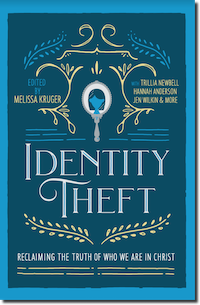This is an excerpt from The Gospel Project for Adults Bible Study from LifeWay. The Gospel Project is an ongoing 13-week Bible study curriculum for all age groups that helps people see Scripture as one over-arching story that points to what God has done for us through Jesus Christ. Find out more and download one month to review free at www.gospelproject.com
In the classic movie Mr. Smith Goes to Washington, Jimmy Stewart plays the role of young, idealistic Jefferson Smith who is appointed to the U.S. Senate. When Senator Smith arrives in Washington, he dreamily boards a sightseeing bus headed for the capital city’s sites. At the Supreme Court Building, he looks up at the sacred words inscribed in marble: “Equal Justice.” Then in a moment intended to evoke a sense of majesty, he slowly ascends the stairs of the Lincoln Memorial to gaze upon the massive statue of this greatest of presidents. Alas, if only this world’s leaders were as majestic as their monuments! A few short scenes later, Senator Smith finds himself face down in the muck of D.C. corruption and power politics.
Since the history of the world, not one nation has been without corruption. Not one has lived up to the ideals inscribed on its monuments. And it’s on this landscape of fallen nations and futile kings that the story of Israel and its rulers is set.
Same as the Other Nations
As the period of the “judges” came to an end, God was Israel’s only king. But the people called for “a king to judge us the same as all the other nations have” (1 Sam. 8:5). At first, God gave them the kind of king they were looking for. King Saul was tall and handsome. But he was impetuous and foolish, jealous and paranoid. He even massacred an entire city—-men, women, and children (22:11-19). “Build your pretty monuments if you want,” God seemed to say, “but do you really want to put your hope here?”
But God did something unexpected. The people might have wanted a king for bad reasons, but God used for good what they meant for evil. God will rule his people through a human king, and he will make his glory known through such a king.
The message for Jefferson Smith and for us is this: You’re right to place all your hopes in a great Leader, to believe that his government will bring equal justice for all as well as life, liberty, and happiness. But you’re not going to find these in the governments or nations of this world. You’re going to find them in an unlikely place and in an unlikely Leader.
It’s true we should give thanks for just and godly leaders. At the same time, we must never forget that first and foremost, Christians are citizens of heaven. Praise God for leaders and nations that seek equal justice and life, liberty, and happiness. But we must remember that ultimately these things will be found in the gospel of Jesus Christ. In their absolutely best moments, the governments of this world can only provide a shadow of what our Savior and King—-Jesus—-will provide.
Work with a Loose Grip
So how does this truth affect our view of earthly leaders? First, we obey human governments, knowing that they have been instituted and authorized by King Jesus. They are his servant and agent (Rom. 13:1-7). We should also pray for them. But we should never disobey Jesus, even if other authorities in this world call us to do so.
Second, we should never let our national identity and national values define us more than our Christian identity and Christian values. Our churches should not be gatherings of Americans; they should be gatherings of Christians who may or may not be American. What can you do to make internationals feel welcome?
Third, we should strive with whatever opportunities the Lord gives us in government—-voting, policing, soldiering, adjudicating, legislating—-to love Christ and to love our neighbors. Christians should work hard for peace, justice, prosperity, and the safety of our neighbors because we love them. And we should do this so that through our lives and fruit, our non-Christian neighbors get a more accurate picture of Christ and his rule. All of us have been given rule over something, even if it’s just a voting ballot or a Boy Scout troop. And we want to use whatever rule we have to produce good in the lives of others, just as Jesus does through his rule.
Finally, even as we work hard for good government, we do so with a loose grip, knowing that our true Savior and King is Jesus, not our favorite presidential or congressional candidate. Jesus is the hope of the nations.
Get Your FREE eBook: ‘Identity Theft’, edited by Melissa Kruger

Do you ever wrestle with the gap between what you believe and how you live? Do you feel discouraged when comparing your faith to others? Do you struggle to believe God would really love fickle-hearted people?
We all do, which is why TGC wants to send you a FREE digital copy of Identity Theft: Reclaiming the Truth of Who We Are in Christ.
Ready to be encouraged? Tell us where to send your copy of Identity Theft using the link below.


































